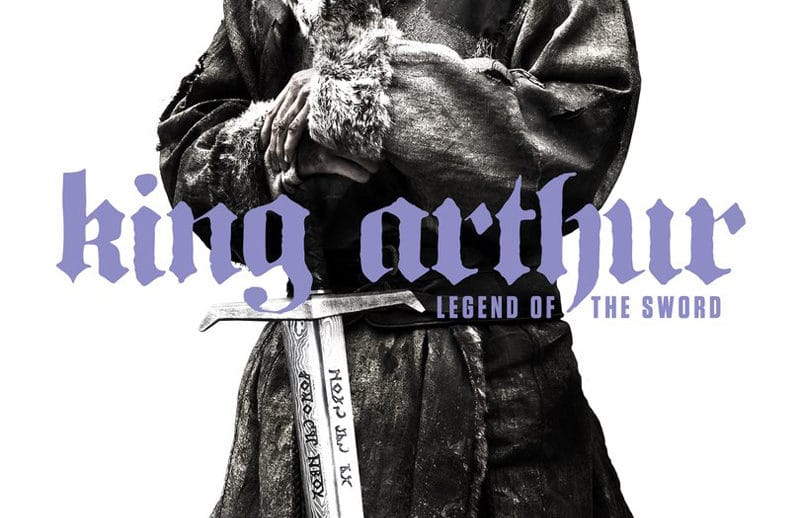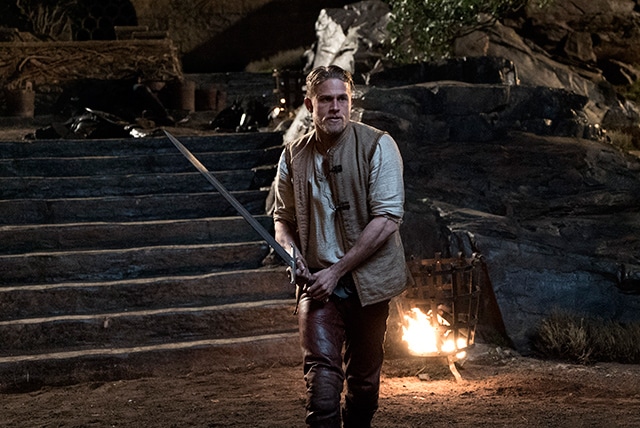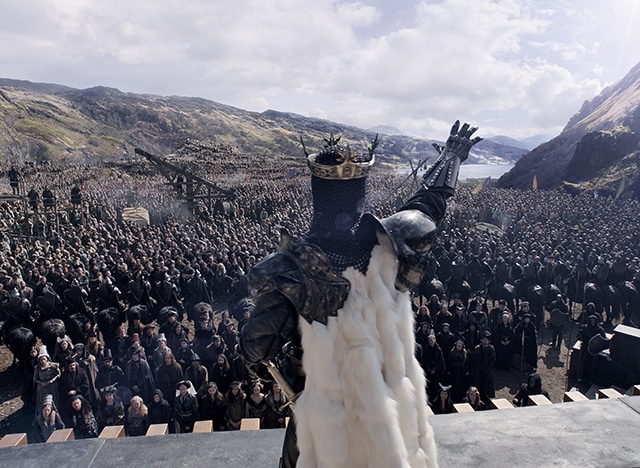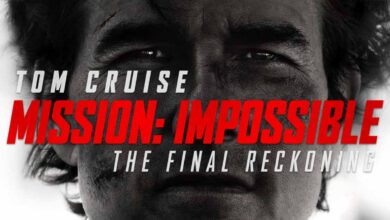Review: King Arthur – Legend of the Sword (2017)
Welp, looks like critics aren’t too keen on King Arthur: Legend of the Sword. With a current rating of 27% on Rotten Tomatoes and a general sense of hostility toward the Guy Ritchie fantasy epic, it doesn’t look like a lot of moviegoers are going to be heading to cinemas for their Arthurian legend fix. That’s too bad, because Legend of the Sword is actually one hell of a good time.
As you might have guessed, the film focusses on the rise of Arthur Pendragon (Charlie Hunnam), who is sent down the Thames as a small child after the deaths of his parents. Raised in a brothel and becoming something of a British gangster, Arthur only discovers who he is when the evil King Vortigern (Jude Law) calls for all young men in the realm to attempt to pull the mythical Excalibur from its stone prison. Of course, Arthur does so, and thus begins his journey to kinghood.
So, with all that plot nonsense out of the way, let’s get straight to the point: this movie is about fifty flavors of crazy. Whether it’s a shadow boxing Arthur ruling the streets of Londinium like a standard British hood or a giant snake outwitting the main villain, things are never boring. We get a plethora of outlandish characters and strange creatures, all of them either straight out of one of Ritchie’s gangster films or from a God of War video game. Hell, our ultimate showdown could have been a cutscene from that game and no one would have questioned it.
Beyond the crazed zeal with which King Arthur brings anachronistic chaos to its surroundings, the most bizarre element here must be that Guy Ritchie factor. This is a man who could not care less about how you feel regarding Arthurian legend. His style, which has become self-parodying through the years, is on full display in a film that would not naturally support it. Several times we’re shown montages of narrated events, with flashy editing and zippy camerawork, all of which seems to only be there in order to give the viewer the finger (or fingers, I guess, since they’re British) while trotting around singing death metal. It’s an almost avant-garde approach, which reminded me more of Ken Russell’s ’70s output — think toned-down Lisztomania and Mahler — than the vaunted Excalibur all other critics keep bringing up.
Of course, what would outlandish fantasy be without performances to back it up? Charlie Hunnam is equal parts charming, arrogant, and honorable as Arthur. He easily carries the whole film, which should come as no surprise to those who saw The Lost City of Z just a couple of weeks ago. Jude Law is appropriately femme as Vortigern, and takes every opportunity to scream and berate others, while also allowing some melodramatic pathos any time he’s forced to kill a loved one to feed to the tentacled Syren (Lorraine Bruce) living under his castle. Aidan Gillen, Djimon Hounsoun, and Craig McGinley work well as some of Arthur’s soon-to-be-knights, although their performances are played a little more straight than the film deserves. Luckily, Arthur’s pals from Londinium — including the Nick Frost-esque Neil Maskell as Back Lack — tend to fit the bill when it comes to gloriously odd turns.
Eric Bana shows up sporadically as Arthur’s father Uther, and does a fine job as the noble, ill-fated king. However, it’s more his scripted actions (you’ll never see the sword in the stone the same way again) than his performance that shines. The only truly negative turn comes from Astrid Bergès-Frisbey, whose Mage (is she Guinevere? It’s never said in the film) is understated by design, but presented as totally wooden. Her peculiar ways do translate well at times, but overall she’s a chemistry black hole.
For those wondering about that other performance Twitter was so quick to jump on, no — David Beckham isn’t that bad. His accent is wrong, but if that bothers you then it’s maybe a good idea to avoid this movie entirely and instead break out a copy of Sense and Sensibility. As someone who had no idea it was him at the time, I’d argue his brief turn berating Arthur works to the anarchistic process Ritchie is so intent on.
That process is never more evident than in the action scenes, which vary wildly. Sometimes it’s by-the-numbers Lord of the Rings fantasy, while others invoke the street aesthetic of Snatch or the aforementioned synthetic destruction of God of War. The special effects are rarely impressive, much like those in the Sherlock Holmes series, although a few winners sneak through. The giant snake is a face-clutching “what the hell am I even watching” masterstroke of CGI nonsense, while Arthur’s all-too-brief adventures in the Darklands and his video game power-up use of Excalibur are both equally fun.
The music by composer Daniel Pemberton sometimes fades into the backdrop due to its standard fantasy epic wailing, but generally tends to stand up and shout at the viewer “you wanna get nuts? Let’s get nuts!” and attack us with manic strings and outlandishly brash compositions. Rhythmic breathing, glass breaking, and even screams are used to spice up the many montages and fast action. It all feels very grungy and energetic, practically pulling directly from the masculine id, and might actually rank amongst Pemberton’s best work. Then there’s his badass collaboration with British folksinger Sam Lee in “The Devil & the Huntsman”, which I imagine will get plenty of covers at future Renaissance fairs. It’s not going to get any Oscar attention, but it should.
If you like your Arthurian legend with a dash of rock ‘n’ roll and a giant elephant-sized bowl of testosterone, King Arthur: Legend of the Sword is for you. Similarly, if you like your movie experience to be fun and free of needless dread, this might be the type of sword and sorcery nonsense to suit you. While there are flaws to be had, and this is by no means “good” by the standard definition, it is incredibly entertaining — and really, isn’t that what a night at the movies is supposed to be?






